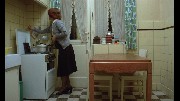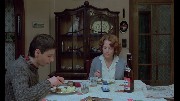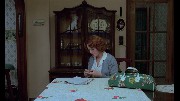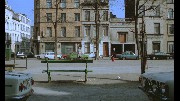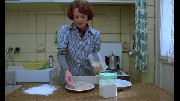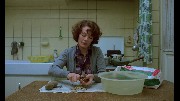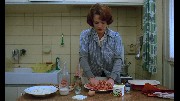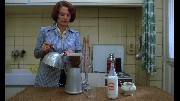Jeanne Dielman, 23, quai du commerce, 1080 Bruxelles (1975) 2 x DVD9 and Blu-Ray Criterion Collection
on January 22nd, 2018 at 17:31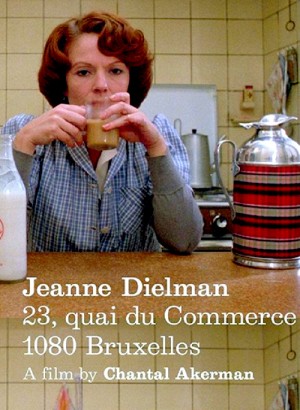
Jeanne Dielman 23, Quai du Commerce 1080 Bruxelles follows a woman called Jeanne Dielman over the course of three days. Each day she cooks, cleans, bathes, tends to her hair, does errands, visits a local coffee shop, and accepts one client who pays her for sex. When her son comes home, they eat dinner together and converse briefly.
In January 1976 Le Monde heralded Chantal Akerman's Jeanne Dielman 23, quai du commerce, 1080 Bruxelles as “the first masterpiece in the feminine in the history of the cinema”. The unconventional style (frontally centred images, elliptical and disjunctive editing) and subject (a woman’s alienation from her daily routine as a housewife and involvement in a discrete form of prostitution that leads her to tragedy) made the film a powerful sign of a decade when feminism erupted into the arena of politics and film.
BD50 + 2xDVD9 | 1080p AVC, NTSC | 03:21:48 | 46.2 Gb + 15 Gb
Language: Francais
Subtitles: English
Director: Chantal Akerman
Cast: Delphine Seyrig, Jan Decorte, Henri Storck
Country: Belgium, France
Genre: Drama

Extras:
• Autour de Jeanne Dielman (69 min.), a documentary shot by Sami Frey, edited by Agnes Ravel and Chantal Akerman , was produced during the production of Jeanne Dielman, 23, quai du Commerce, 1080 Bruxelles, which showcases the process of the direction. It's a great, must-see behind-the-scenes documentary which even includes moments showcasing how the director and star rehearsed several scenes.
• Chantal Akerman: On Jeanne Dielman (20 min.) is an interview with the writer-director about the film, it's importance, and her lasting legacy as a filmmaker.
• Chantal Akerman: On Filmmaking (17 min.)is taken from the episode Chantal Akerman par Chantal Akerman, where the filmmaker discusses her work and approach to film and life. From the French program cinema de notre temps.
• Chantal Akerman and Delphine Seyrig (7 min.) are interviewed together in a segment from a French television program which aired in 1976. The director and star of the film discuss Jeanne Dielman and their views on the story and its importance.
• Babette Mangolte (23 min.), cinematographer of Jeanne Dielman, is interviewed about the film and about her work with Akerman on several other films. She discusses their meeting and working together over the years.
• Natalia Akerman (28 min.), Chantal Akerman's mother, is interviewed by her daughter about her filmmaking and about Jeanne Dielman.
• Saute Ma Ville (13 min.) is a 1968 short film which shares many of the same ideas and themes of Jeanne Dielman, which was the first short film made by director Chantal Akerman, starring herself, made when she was 18. Includes optional intro (1 min.) from Chantal Akerman.
upstore
Jeanne.Dielman.1975.CC.BluRay.L.part01.rar
Jeanne.Dielman.1975.CC.BluRay.L.part02.rar
Jeanne.Dielman.1975.CC.BluRay.L.part03.rar
Jeanne.Dielman.1975.CC.BluRay.L.part04.rar
Jeanne.Dielman.1975.CC.BluRay.L.part05.rar
Jeanne.Dielman.1975.CC.BluRay.L.part06.rar
Jeanne.Dielman.1975.CC.BluRay.L.part07.rar
Jeanne.Dielman.1975.CC.BluRay.L.part08.rar
Jeanne.Dielman.1975.CC.BluRay.L.part09.rar
Jeanne.Dielman.1975.CC.BluRay.L.part10.rar
Jeanne.Dielman.1975.CC.BluRay.L.part11.rar
Jeanne.Dielman.1975.CC.DVD1.L.part1.rar
Jeanne.Dielman.1975.CC.DVD1.L.part2.rar
Jeanne.Dielman.1975.CC.DVD2.L.part1.rar
Jeanne.Dielman.1975.CC.DVD2.L.part2.rar
